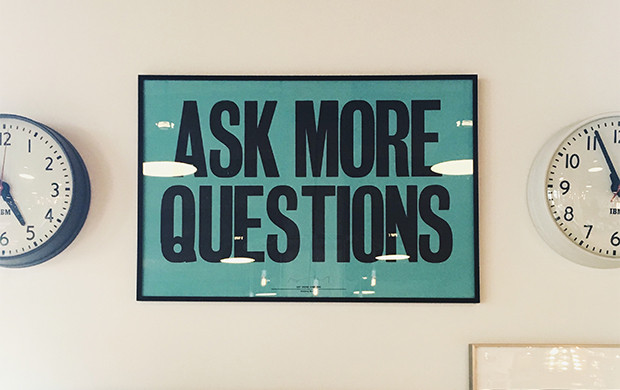Posted on 2nd November 2016 by Jon Terry
You’ve Been Offered a New Job, What Happens Next?

There are a number of discussions between HR and the hiring managers that need to take place before and after your interview, so it is essential you verify every important detail. If there is anything you are unsure of, take note, and discuss it with an HR employee when you talk to them about the offer at hand.
Here are some areas we suggest you look out for in order to feel you have all the information you’ll need to make an informed discussion or to negotiate prior to accepting.
What about the money?
If you’ve already discussed your potential salary during the interview, it may be difficult to alter expectation, but it's worth mentioning if you feel they’ve undervalued your worth or underestimated the challenge.
 Whether you mentioned it there and then or if you are talking about it for the first time with HR, ensure you negotiate or back up what you would like to earn in solid numbers - there are tools which help you calculate what other experts in your field with similar background and years experience make in your area.
Whether you mentioned it there and then or if you are talking about it for the first time with HR, ensure you negotiate or back up what you would like to earn in solid numbers - there are tools which help you calculate what other experts in your field with similar background and years experience make in your area.
If you are working with an executive search agency, an experienced recruitment consultant will be able to advise how to approach this sensitive topic, they will know what you are worth and will help to negotiate your ideal, but realistic, salary.
Are there any benefits?
Ensure you ask about company sponsored benefits, which could include health and life insurance options, or childcare vouchers.
Benefits are worth considering as you will gain a sense of the corporate culture and they could be beneficial. For example, if you are thinking about having children in the future - you may want to ask about the maternity and paternity leave policies.
A valued recruitment consultant can also help to negotiate these benefits and make sure that you receive all the information you need.
What about Professional Development?
Some companies will allow you to undergo relevant conferences and classes to help develop or maintain your professional competencies. Generally, this money can go towards professional memberships in trade associations or organisations.
 If they do provide this, ask what funds are available towards professional development and how much the sessions pay. You should also ensure you find out if there is a payback clause stated that if you leave before a particular date, the funds must be paid back to the company.
If they do provide this, ask what funds are available towards professional development and how much the sessions pay. You should also ensure you find out if there is a payback clause stated that if you leave before a particular date, the funds must be paid back to the company.
At the very least you will want to ask whether the company is going to allow you the time or involvement in workplace projects to allow you focus on your own continual professional development.
Your recruitment consultant can help to make sure that any professional development options are written into your contract, and that you are clear on their terms.
Meeting expectations
Employee reviews are a key element to most businesses and the schedules vary amongst employers, so it is important you find out how how often they are held or if there is a formal process. When starting, you want to be fully aware of how things work and how to position yourself for growth if that's what you're after.
You may want to ask HR how long it normally takes to be promoted in your role and if there is a salary increase at each employee review, assuming you have shown high quality performance.
How much time off do I get?
 Make sure you are aware of a few things regarding paid time off, such as when you will be able to start your annual leave? How many days do you get each year? When will you begin to receive more? Can you buy or sell annual leave days?
Make sure you are aware of a few things regarding paid time off, such as when you will be able to start your annual leave? How many days do you get each year? When will you begin to receive more? Can you buy or sell annual leave days?
If you have any upcoming plans that cannot be rearranged such as funerals and weddings, you should inform HR now and ask when it should be brought to your manager's attention.
What bonuses are available?
A bonus is not offered by every company and if it is, it’s usually tied to your performance reviews and the company earnings. Ensure you ask HR if annual bonuses are an option and what they are tied to, you may even want to ask what bonuses were given recently and what for.
Before you accept a job offer, it is vital you are aware of what you’re walking into as you do not want to run into any surprises once you start. Ask HR as many questions as you can, especially in terms of salary and benefits so you can make the right decisions and not regret it later.
Hiring an Executive Recruitment Consultant
An experienced recruitment consultant can help you through every stage of your job search. They can make sure your salary expectations are clear and that they are relayed to the hiring company. A experienced recruiter can help you to understand your contract and make sure that you have all the information you need before accepting a role.
Wright Solutions offer executive recruitment services and have a team of expert executive recruiters that specialise in placing candidates for executive roles within Human Resources (HR) and Learning and Development.
For more information or to discuss our services please feel free to get in touch either by telephone on 0121 222 5599 or by email to info@wrightsolutionsltd.com. Don’t forget you can follow us on Twitter, Facebook, Google+ and LinkedIn or sign up to our newsletter for regular updates.


